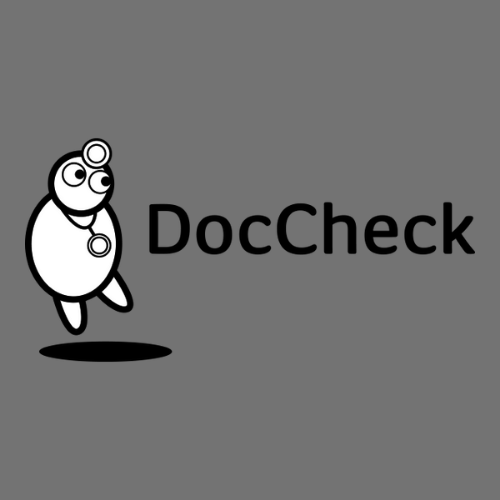With Zammad, we save at least half an hour of working time per employee every day - and this is constantly being optimized.
Why a helpdesk?
DocCheck's portfolio is broad: Medical products can be purchased in the online store, while the community is a popular platform for exchange among medical professionals. At the same time, the Flexikon established itself as the "Wikipedia of medical terms". And last but not least, the DocCheck login provides access to specialist sites that fall under the Therapeutic Products Act. How do you keep track of all this?
The DocCheck team is well-coordinated and adapts flexibly to new challenges. However, there was one stumbling block: Unlike the team, the previous ticket system wasn't flexible at all. "Unfortunately, our previous ticket system, OTRS, did not offer us the possibility to map the different units of our company," Daniel Vierbuchen, head of the Customer Care team, recalls in conversation. "Instead, we had to use a CRM in addition to OTRS, among other things. Also, searching for older tickets was very tedious and the options were very limited - so it wasn't much support for us. We wanted to change that, which is why we looked for another alternative."
Why Zammad?
We wanted a reliable ticket system that could merge all our units and requirements and cover all channels," Vierbuchen explains. "Since DocCheck is very innovation-driven, it was important for us to also be able to provide our customers with modern communication channels. Hence messenger systems and a chat were also mandatory.
In addition, the DocCheck team generally relies on systems that can be self-hosted, as the existing infrastructure is ideal for this and it also ensures a high level of data protection. The new helpdesk should also fulfill this requirement.
In the course of the research, other systems were initially considered: "We also looked at options such as Zendesk, for example. But here we clearly lacked the flexibility to adapt the system to our own needs. Zammad looked very promising in this regard, and also in terms of our other requirements."
What was the switch like?
Easy migration was important from the beginning. "We wanted to avoid a long downtime, and that also seemed possible with Zammad, since it is based on OTRS," Vierbuchen explains. "Our wishful thinking was that we would turn off the button in OTRS on Friday, turn it back on in Zammad on Monday, and then magically find all the tickets in there - including the ones from the weekend."
It didn't work quite by magic. First, all the old tickets were imported from OTRS to Zammad, then everything else was migrated. "There were also a few stumbling blocks in the process, but the support from the Zammad team was just great and exceeded all expectations." In the end, it all worked out: On Monday morning, Zammad was ready to go. But was the team?
Everyday life with Zammad
By November 2020, the mailbox migration was complete and the DocCheck Support team began using Zammad. "At first, some colleagues had a few reservations," Vierbuchen recalls. "But Zammad was a great help from the beginning, which took away the fear and motivated all employees. Everyone managed to use it just fine - so the system was an overall success."
Then the Christmas business started, which meant a big increase in inquiries, especially for the DocCheck Shop. Vierbuchen says: "The whole Christmas business could be managed smoothly with Zammad, which was an unexpectedly positive experience. In the process, Zammad Support was again enormously helpful, enabling, for example, a few more small adjustments."
But that was only the small hurdle. "At the beginning of 2021, with the third Corona wave and the long lockdown, a huge backlog arose in Support," Vierbuchen recalls. "We sometimes put in night shifts to get ahead, and often had to quickly assign new user rights, create overviews, etc. Our employees were happy and thankful that we switched to Zammad in time because we would never have managed the same workload with OTRS. During the whole time, there were no criticisms or complaints about Zammad. In retrospect, we know: Thanks to Zammad, we have positioned ourselves perfectly."
The great experience of the Support team has helped convince other departments to switch to Zammad as well, one by one. "Everyone was grateful from Day 1," Vierbuchen says with satisfaction.
What does the future hold?
The last unit to join Zammad will be the rather complex media department. Then all of DocCheck's units will have been successfully transferred to Zammad. But not only the units, but also the individual departments want to take advantage of the new ticket system: "Just the other day, the head of our System Administration approached me. There, too, they want to switch from Jira to Zammad."
In the long term, customers should be able to view their own tickets and then use various channels, such as Telegram, to drive communication. Vierbuchen and his team are already looking forward to that. "Zammad is simply a gift. This level of flexibility and customizability was not what we were looking for, but in retrospect is the best thing that could have happened to us. In conclusion, Zammad has been a lot of fun and a godsend for us so far. It has exceeded our expectations in every way."
- Tickets solved
- Agents
- Response time
- <54k / month
- ~15
- varies



